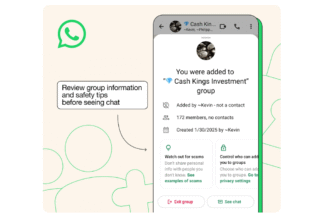Cloudflare Cracks Down on UK Piracy – VPN Users Caught in the Crossfire
In recent years, the proliferation of the internet has allowed for an unprecedented exchange of information and entertainment. However, it has also created challenges, particularly regarding piracy. With a significant uptick in illegal content distribution, companies are taking measures to protect their assets. One such company is Cloudflare, a global leader in internet security and performance services. As it tightens its grip on piracy in the UK, many VPN users find themselves inadvertently caught in the resulting crossfire. This blog post will explore what’s happening, why it matters, and the broader implications for internet users.
What Is Cloudflare and Why Is It Cracking Down on Piracy?
The Role of Cloudflare in Internet Security
Cloudflare is best known for providing content delivery network services, DDoS mitigation, and internet security. By protecting websites from various threats, including distributed denial-of-service (DDoS) attacks, it supports businesses in maintaining their online presence. However, this role can complicate matters when it comes to the distribution of pirated content.
The Piracy Problem in the UK
The UK has seen a surge in the consumption of pirated content, largely driven by the rising costs of legitimate streaming services and a growing digital-savvy audience. The British government and various media corporations have responded by escalating efforts to combat online piracy, partnering with firms like Cloudflare to block access to illegal streaming sites and reduce copyright infringement. This is where things start to involve the average internet user – particularly those utilizing Virtual Private Networks (VPNs).
VPNs: The Double-Edged Sword
What Are VPNs and How Do They Work?
VPNs create a secure connection between a user’s device and a remote server, effectively masking the user’s IP address and providing anonymity while browsing. These services have become increasingly popular, especially among those who want to access geo-restricted content, maintain privacy, or secure personal information on public Wi-Fi.
VPNs and Piracy: A Controversial Relationship
While VPNs are often marketed as tools for privacy and security, they can also be used to circumvent restrictions on pirated content. This dual use complicates the landscape for Cloudflare and other digital entities striving to eliminate piracy. Companies find themselves grappling with the challenge of distinguishing between legitimate users and those exploiting the service for illicit purposes.
The Consequences of Cloudflare’s Actions on VPN Users
Increased Restrictions and Potential Impact on Privacy
As Cloudflare tightens restrictions on suspected piracy, VPN users have reported an uptick in blocked access to various online resources, including streaming sites, forums, and even legitimate websites. Cloudflare’s advanced measures can restrict entire VPN servers based on identified malicious behavior, affecting individuals who were simply trying to safeguard their online activities.
Real Users Facing Unintended Consequences
Imagine countless individuals who rely on VPNs for legitimate reasons—journalists reporting from restrictive regimes, whistleblowers sharing vital information, and everyday users trying to watch a show that’s unavailable in their country. Many are suddenly rendered unable to access the very content they were seeking. This broader crackdown raises ethical questions regarding collective punishment—should legitimate users bear the burden for the actions of a few?
The Legal and Ethical Implications
Legal Grounds for Cloudflare’s Actions
Cloudflare operates under the laws applicable in the countries it serves. In the UK, the Digital Economy Act and various copyright laws allow authorities to take action against companies facilitating piracy. Cloudflare’s partnership with rights holders aligns with these legal frameworks, enabling it to fulfill its corporate responsibility while safeguarding copyright overseas.
Ethical Considerations for Users and Corporations
Should VPN companies be doing more to identify users participating in piracy? Conversely, should victims of collateral damage, particularly those using VPNs for legitimate activities, be afforded more protections? These questions highlight the ethical complexity surrounding internet use, privacy, and content ownership in an increasingly digital society.
What Can Users Do?
Resources for Affected Users
For those who find their VPN access restricted or blocked by Cloudflare’s crackdown, several resources are available. Many VPN providers have developed support systems to assist users facing access issues, where they can find alternative server options or methods of connecting.
Remaining Informed and Engaged
Staying informed about the policies of VPN providers and the evolving landscape of copyright law can empower users to make better choices. Advocating for privacy rights and supporting organizations that promote digital freedom can contribute to responsible internet usage while protecting legitimate interests.
Conclusion
Cloudflare’s recent measures to combat piracy in the UK represent a significant move in the ongoing battle between copyright enforcement and digital privacy. However, this crackdown has inadvertently placed VPN users in a precarious situation, demonstrating the complex interplay between technology, legality, and ethics in today’s digital era. As internet entities evolve to protect their interests, users must remain vigilant and informed, balancing personal privacy with ethical consumption of content.
In the end, the fight against piracy must not come at the cost of individual rights and freedoms. The conversation surrounding copyright enforcement and digital privacy is far from over, and as it continues, the implications for both corporations and everyday users will remain crucial.





